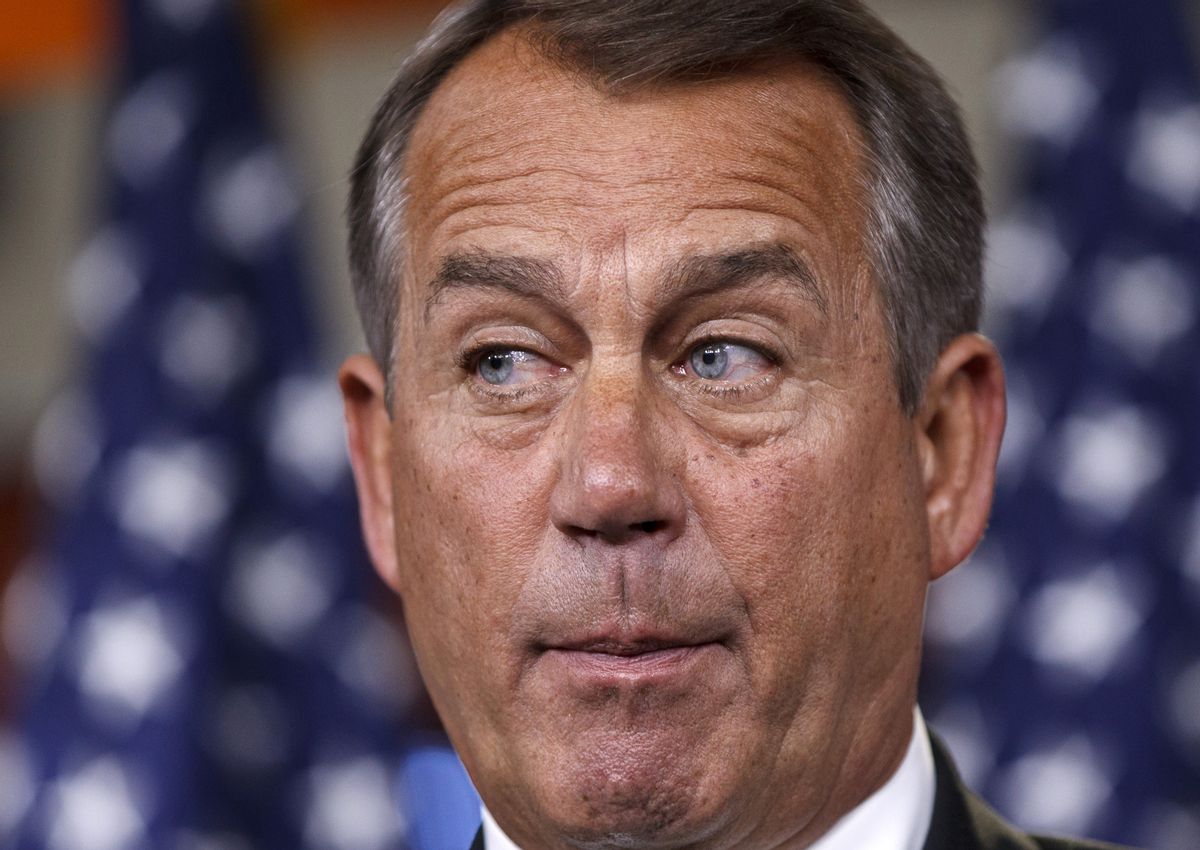 There’s no way to spin the 2011 debt-ceiling crisis as anything other than ridiculous, but it’s easy to understand the mentality that led the GOP to hold the country hostage. Republicans had just won a massive victory in the House of Representatives and conservatives felt validated; the GOP majority was built with candidates who didn’t shy away from the right. Moreover—to the recently elected representatives—the public had sent them to Washington to cut spending, and the debt ceiling was a perfect opportunity to do just that.
There’s no way to spin the 2011 debt-ceiling crisis as anything other than ridiculous, but it’s easy to understand the mentality that led the GOP to hold the country hostage. Republicans had just won a massive victory in the House of Representatives and conservatives felt validated; the GOP majority was built with candidates who didn’t shy away from the right. Moreover—to the recently elected representatives—the public had sent them to Washington to cut spending, and the debt ceiling was a perfect opportunity to do just that.
There’s much less clarity in the current situation. President Obama won re-election by a solid margin, taking 51 percent of the popular vote and 65 million votes overall. Democrats expanded their majority in the Senate, and managed to make a little headway in the House. For as much as it disappointed liberals, the fiscal-cliff deal was a sign of the new times: It’s hard to imagine any House Republicans voting for a tax increase on the wealthy in 2011.
Unfortunately, the 2012 elections didn’t disrupt Republicans enough to push them away from the debt ceiling as a negotiating tool. The Washington Post, for example, reports that at the same time GOP leaders are urging ordinary lawmakers to keep ranks—John Boehner told House Republicans to “hold the line”—more cautious legislators are whether its worth doing this in the first place:
Rep. Billy Long, a Missouri Republican who first won election in the 2010 tea party wave, voted in favor of the 2011 debt-limit deal in part because “no one knows the ramifications of not passing a debt ceiling increase and this plan prevents us from finding out,” according to a statement he released at the time.
In an interview Friday, Long lamented that the only way Congress seems to do business is in eleventh-hour deals and he balked at the notion of shutting down the government.
It’s important not to overstate the amount of dissent here—key Republicans in both chambers of Congress have endorsed using the debt ceiling as a way to force spending cuts. Nonetheless, it’s fair to say that the self-assured Republican Party of just two years ago has been replaced with something a little more gun shy. Indeed, given the administration’s refusal to cut a deal on the debt ceiling—and the obvious necessity of raising it—there’s a (small) chance that, when push comes to shove, Republicans will back down from their call for spending cuts, and just raise the ceiling.
It should be said that if there’s been an attitude change among congressional Republicans, it’s almost certainly a reflection of soul searching within the party. Thanks to the Bush administration, millions of Americans now associate the GOP with intolerance, incompetence, and warmongering. They’ve lost the popular vote in five of the last six presidential elections, and they’re losing by huge margins among young people, women, and non-whites.
The same divisions in congressional strategy—between hard-liners who would make brinksmanship a normal part of goverance, and realists who understand that not everything can be a standoff—are present in the push for reform. One side wants the GOP to craft an agenda that’s more friendly to the interests of Latinos, women, and middle-class families; the other thinks that a more conservative agenda will win the day.
The debt ceiling fight—or rather, whether there is a debt ceiling fight at all—will give us a sign of who is winning this battle. The last debt limit battle wrecked havoc on the GOP’s approval with the public, and was a huge force in pushing many Americans from the party and its approach to politics. Which is to say that any attempt at reform must include a repudiation of those tactics. If that doesn’t happen, and Republicans threaten global recession again, then we can safely predict a nice period in the wilderness for the GOP.



Shares